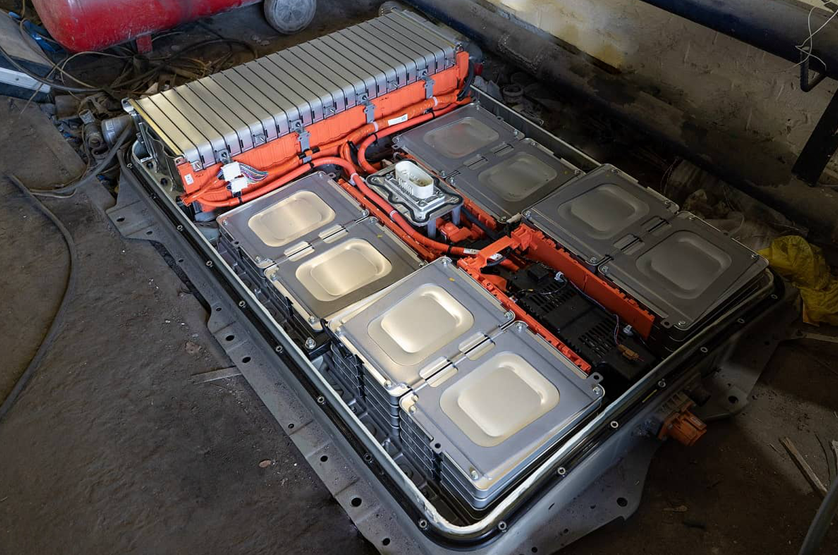Landwirtschaftliche Werkzeuge revolutioniert durch Hochleistungs-Lithiumbatterien
There has been a significant advancement in agricultural tools due to the use of high-power lithium batteries. These batteries have revolutionized the way farmers work, providing them with increased efficiency, improved productivity, and reduced environmental impact. This article will explore how high-power lithium batteries have transformed agricultural tools and the benefits they bring to the agricultural industry.
One of the significant advantages of high-power lithium batteries is their ability to provide a stable and long-lasting power source for agricultural tools. Traditional tools, such as chainsaws, trimmers, and tillers, often rely on fuel-powered engines, which can be noisy, emit harmful fumes, and require regular maintenance. With the introduction of high-power lithium batteries, farmers can now enjoy the convenience of cordless tools that are quieter, more portable, and require minimal maintenance. These batteries provide a consistent power supply, allowing farmers to work for extended periods without interruption.
High-power lithium batteries have improved the efficiency and effectiveness of agricultural tools. Electrically powered tools equipped with these batteries offer enhanced performance, enabling farmers to complete tasks more quickly and with greater precision. For example, battery-powered chainsaws can effortlessly cut through thick branches, trimmers can handle dense vegetation with ease, and tillers can efficiently cultivate large areas of land. Additionally, these batteries can be charged quickly and provide consistent power throughout the operation, ensuring that farmers can complete their tasks without any delays.
The introduction of high-power lithium batteries has also led to a reduction in the environmental impact of agricultural activities. Traditional fuel-powered tools contribute to air pollution through the emission of greenhouse gases and harmful pollutants. By switching to battery-powered tools, farmers can significantly reduce their carbon footprint and improve air quality. Additionally, the use of batteries eliminates the need for fuel storage and transportation, reducing the risk of accidental spills and soil contamination. This environmentally friendly approach aligns with the growing demand for sustainable farming practices and helps to preserve the quality of the land for future generations.
High-power lithium batteries have made agricultural tools more user-friendly. Farmers no longer need to worry about the complexities of starting and maintaining fuel-powered engines. Battery-powered tools are simple to operate, requiring only a press of a button to start. They are also quieter, reducing noise pollution and making it more comfortable for farmers to work for extended periods. The lightweight nature of lithium batteries also makes the tools more ergonomic, reducing the strain on farmers’ bodies and minimizing the risk of injuries.

The adoption of high-power lithium batteries in agricultural tools has not only improved the efficiency and sustainability of farming practices but has also brought economic benefits. While the initial investment in battery-powered tools may be higher than traditional tools, the long-term savings can be significant. Farmers no longer need to spend money on fuel, oil, or regular engine maintenance. Additionally, the increased productivity and reduced labor needed for tasks can result in higher yields and profits for farmers.
The use of high-power lithium batteries has revolutionized agricultural tools, providing farmers with enhanced efficiency, improved productivity, reduced environmental impact, and economic benefits. These batteries offer a stable and long-lasting power source, making tools more efficient and effective. Furthermore, they contribute to a greener and more sustainable farming industry by reducing air and soil pollution. With their user-friendly design and economic advantages, high-power lithium batteries are undoubtedly transforming the way farmers work and heralding a new era of technological advancements in agriculture.
-
 Eine Notstarterbatterie, auch Starthilfe oder Booster-Pack genannt, ist ein Gerät, das Sie vor dem Stillstand mit einer leeren Autobatterie bewahren kann. Es handelt sich im Wesentlichen um eine tragbare Batterie, mit der man einem Auto Starthilfe geben kann, ohne dass ein weiteres funktionierendes Fahrzeug oder ein Satz Starthilfekabel erforderlich ist. Wenn Sie jemals...Weiterlesen
Eine Notstarterbatterie, auch Starthilfe oder Booster-Pack genannt, ist ein Gerät, das Sie vor dem Stillstand mit einer leeren Autobatterie bewahren kann. Es handelt sich im Wesentlichen um eine tragbare Batterie, mit der man einem Auto Starthilfe geben kann, ohne dass ein weiteres funktionierendes Fahrzeug oder ein Satz Starthilfekabel erforderlich ist. Wenn Sie jemals...Weiterlesen -
 Einleitung: Da Technologie ein integraler Bestandteil unseres täglichen Lebens ist, ist eine zuverlässige und langlebige Stromversorgung von entscheidender Bedeutung. Egal, ob Sie campen, Boot fahren oder eine Notstromquelle für Ihr Zuhause benötigen, der 12-V-LiFePO4-Akku mit hoher Kapazität und einer Kapazität von 100 Ah ist die perfekte Lösung. In diesem Artikel werden die Funktionen, Vorteile und Anwendungen dieses ... untersucht.Weiterlesen
Einleitung: Da Technologie ein integraler Bestandteil unseres täglichen Lebens ist, ist eine zuverlässige und langlebige Stromversorgung von entscheidender Bedeutung. Egal, ob Sie campen, Boot fahren oder eine Notstromquelle für Ihr Zuhause benötigen, der 12-V-LiFePO4-Akku mit hoher Kapazität und einer Kapazität von 100 Ah ist die perfekte Lösung. In diesem Artikel werden die Funktionen, Vorteile und Anwendungen dieses ... untersucht.Weiterlesen -
 Da die Welt zunehmend auf tragbare Technologie angewiesen ist, ist die Nachfrage nach Hochleistungsbatterien sprunghaft angestiegen. Ein Bereich, der ein erhebliches Wachstum verzeichnet, ist die Automobilindustrie, in der Automobilhersteller ständig nach Möglichkeiten suchen, die Leistung ihrer Fahrzeuge zu verbessern. Eine Möglichkeit, dies zu erreichen, ist der Einsatz von Lithium-Starterbatterien. Ein leistungsstarker 12V...Weiterlesen
Da die Welt zunehmend auf tragbare Technologie angewiesen ist, ist die Nachfrage nach Hochleistungsbatterien sprunghaft angestiegen. Ein Bereich, der ein erhebliches Wachstum verzeichnet, ist die Automobilindustrie, in der Automobilhersteller ständig nach Möglichkeiten suchen, die Leistung ihrer Fahrzeuge zu verbessern. Eine Möglichkeit, dies zu erreichen, ist der Einsatz von Lithium-Starterbatterien. Ein leistungsstarker 12V...Weiterlesen -
 When it comes to boating, having a reliable and efficient power source is essential. A cranking battery is designed specifically for this purpose, providing the necessary power to start your boat\'s engine. In this article, we will explore the features and benefits of a cranking battery, as well as provide tips on how to choose the right one for your...Weiterlesen
When it comes to boating, having a reliable and efficient power source is essential. A cranking battery is designed specifically for this purpose, providing the necessary power to start your boat\'s engine. In this article, we will explore the features and benefits of a cranking battery, as well as provide tips on how to choose the right one for your...Weiterlesen -
 As technology continues to advance, the choices for motorcycle batteries are becoming more varied and sophisticated. One of the latest and greatest options for powering your bike is the LiFePO4 motorcycle battery. This type of battery offers a number of benefits over traditional lead-acid batteries, making it a popular choice for riders who demand the best performance possible. Here are...Weiterlesen
As technology continues to advance, the choices for motorcycle batteries are becoming more varied and sophisticated. One of the latest and greatest options for powering your bike is the LiFePO4 motorcycle battery. This type of battery offers a number of benefits over traditional lead-acid batteries, making it a popular choice for riders who demand the best performance possible. Here are...Weiterlesen -
 A high-quality 48V LiFePO4 battery charger is an efficient power supply device that can help ensure the longevity and reliability of your battery system. LiFePO4 batteries are known for their high energy density, long cycle life, and stable voltage, making them an excellent choice for a wide range of applications, from electric vehicles and solar energy storage systems to backup...Weiterlesen
A high-quality 48V LiFePO4 battery charger is an efficient power supply device that can help ensure the longevity and reliability of your battery system. LiFePO4 batteries are known for their high energy density, long cycle life, and stable voltage, making them an excellent choice for a wide range of applications, from electric vehicles and solar energy storage systems to backup...Weiterlesen -
 Im heutigen digitalen Zeitalter sind wir in hohem Maße auf eine Vielzahl von Geräten wie Smartphones, Laptops, Elektrofahrzeuge und erneuerbare Energiesysteme angewiesen, um unseren täglichen Bedarf zu decken. Diese Geräte wiederum sind auf effiziente und zuverlässige Stromquellen angewiesen, um reibungslos zu funktionieren. Eine solche Stromversorgungslösung, die immer beliebter wird, ist das fortschrittliche 48-V-LiFePO4-Batterieladegerät. Der...Weiterlesen
Im heutigen digitalen Zeitalter sind wir in hohem Maße auf eine Vielzahl von Geräten wie Smartphones, Laptops, Elektrofahrzeuge und erneuerbare Energiesysteme angewiesen, um unseren täglichen Bedarf zu decken. Diese Geräte wiederum sind auf effiziente und zuverlässige Stromquellen angewiesen, um reibungslos zu funktionieren. Eine solche Stromversorgungslösung, die immer beliebter wird, ist das fortschrittliche 48-V-LiFePO4-Batterieladegerät. Der...Weiterlesen

